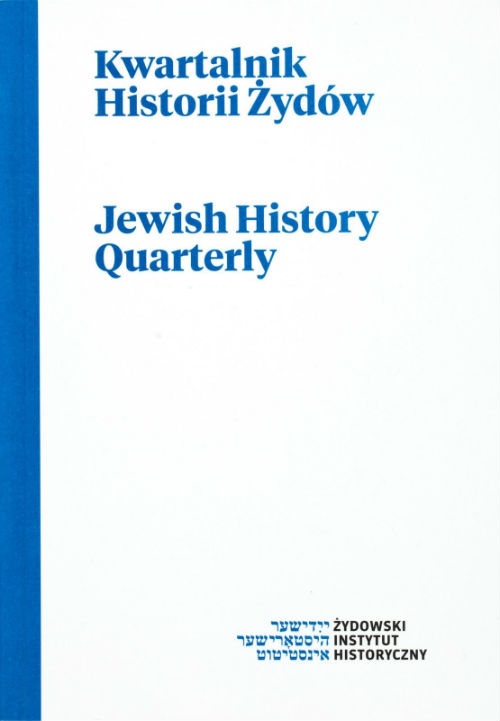Żydzi w świetle akt sejmiku brzeskiego litewskiego na podstawie wybranych przykładów z II połowy XVII w. i czasów saskich
Jews in the Light of Brest Litovsk Regional Diet Records from the Second Half of the 17th Century and the Saxon Period
Author(s): Przemysław ZarubinSubject(s): History
Published by: Żydowski Instytut Historyczny
Keywords: Brest Litovsk; Jews in Belarus; Polish-Lithuanian Commonwealth; local diets
Summary/Abstract: Brest-Litovsk (in Polish, Brześć) is one of the bigger cities in Belarus. In early modern times it was also known from its famous Jewish kehilla, which was regarded as one of the most influential ones in Lithuania. Jewish merchants from Brest Litovsk traded mostly in honey, furs, wax, wood, but also clothes and Oriental spices. The Jews of Brest-Litovsk frequently acted as tolls- and duties-lessees. Brest-Litovsk’s economic importance found its expression in the strong representation of its community on the Lithuanian Council (Vaad Lita) in the first half of the 17th century. Brest Litovsk Diet’s (sejmik) records constitute the main archival source for this article. They provide only an incomplete image of the social and ethnic relations in Lithuania in the seventeenth and the first half of the eighteenth century. In Brest Litovsk’s Diet acts are marked by a rather unfavourable attitude towards Jews. The majority of the Diet’s legislation concerns various economic matters and the enforcement of the existing laws. The gentry (szlachta) wanted Jews to pay Jewish poll tax (poglowne), but not in lump sums. Execution of Jewish debts was also frequently seen as a remedy for impoverished Brest-Litovsk voivodship, especially after the wars with Cossacks, Russia and Sweden. Confiscation of the Jewish real estate was also adopted as a protective measure. The extremely high indebtedness of the Jews led the provincial Diet to attempt to ease the tax burden for Jews. In Brest-Litovsk, we can find numerous regulations forbidding Jews from leasing tax and estates, and concerning Christian servants in Jewish houses. The gentry demanded to levy an additional tax on Jews who were employing Christian servants.
Journal: Kwartalnik Historii Żydów
- Issue Year: 219/2006
- Issue No: 03
- Page Range: 327-340
- Page Count: 15
- Language: Polish

